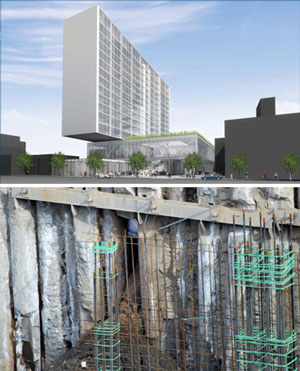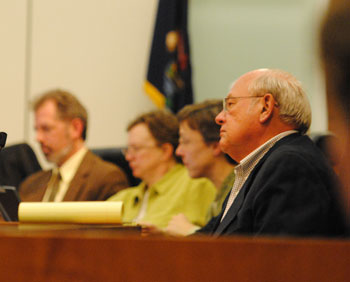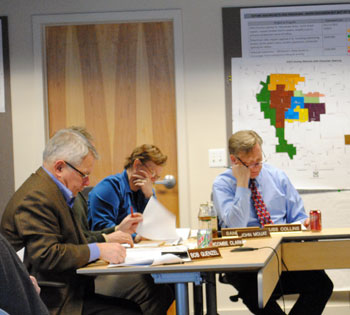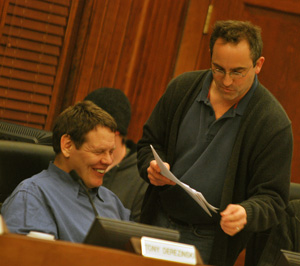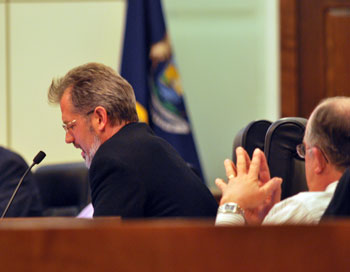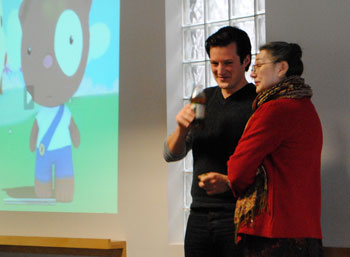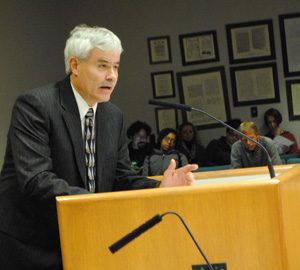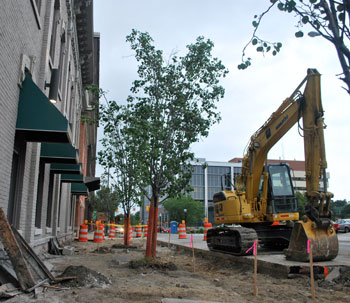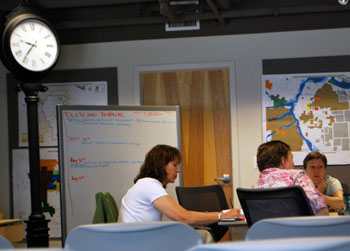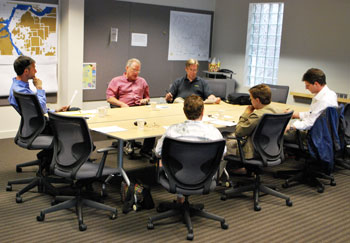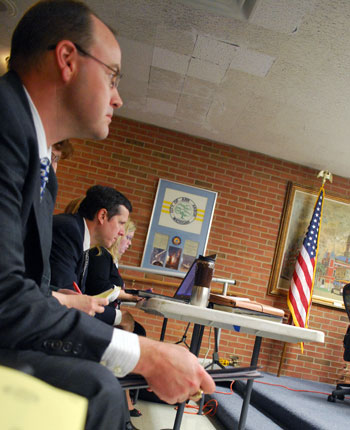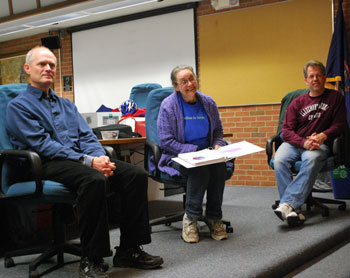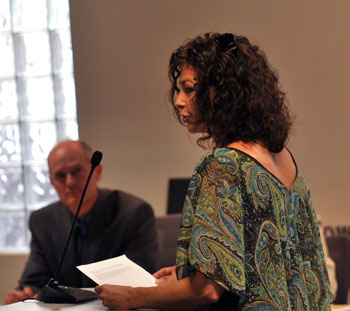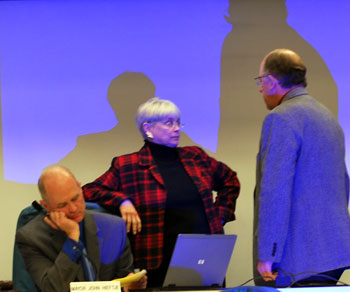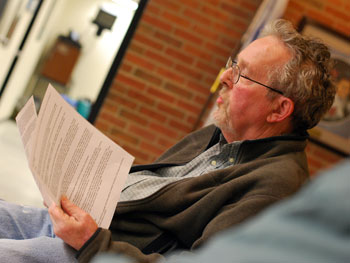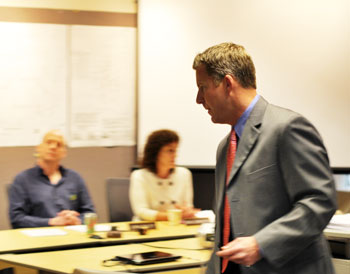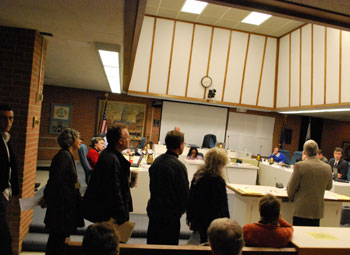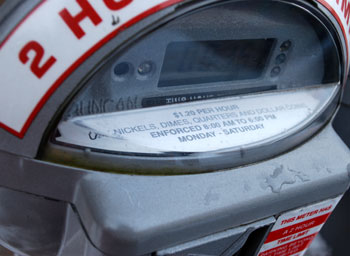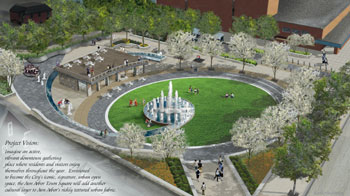Ann Arbor Council Finally OKs DDA-Led Plan
At its April 4, 2011 meeting, the Ann Arbor city council finally voted to approve a resolution that would establish a process to develop alternate uses of city-owned downtown surface parking lots, to be led by the Ann Arbor Downtown Development Authority. The vote was unanimous.
The council had considered but postponed the resolution at its March 7, 2011 meeting, and before that at its Jan. 18, 2011 meeting. At the March 7 meeting, Marcia Higgins (Ward 4) had complained that no revisions had been made to the resolution to accommodate objections made at the Jan. 18 meeting. [.pdf of the unamended resolution with the parcel-by-parcel plan] At that meeting, objections to the proposal included “resolved” clauses in the resolution that would (1) require placement of items on the city council’s agenda; and (2) under some circumstances require the city to reimburse the DDA for its expenses.
At the April 4 meeting, Christopher Taylor (Ward 3) offered amendments to the resolution that among other things added additional language about public process: “Solicit robust public input and conduct public meetings to determine residents’ parcel-level downtown vision.” Taylor also added clarifying language that would require the DDA to account for its direct costs and that they be reported along the way, in order to potentially have their costs reimbursed. Those amendments were undertaken as revisions to the resolution at the start of deliberations.
Sandi Smith (Ward 1) offered an amendment that confined the focus to the area bounded by William, Ashley, Liberty and Division streets, which passed on a 6-4 vote, with dissent from Taylor, Carsten Hohnke (Ward 5), Mike Anglin (Ward 5) and Tony Derezinski (Ward 2).
At its Jan. 5 board meeting, the Ann Arbor DDA board had approved a resolution urging passage of the council resolution, which had been circulated as early as the city council’s Dec. 20, 2010 meeting, when Taylor had attached a copy of the the draft resolution to the council’s meeting agenda, and alerted his council colleagues to it at that meeting
This brief was filed from the city council’s chambers on the second floor of city hall, located at 100 N. Fifth Ave. A more detailed report will follow: [link] [Full Story]




